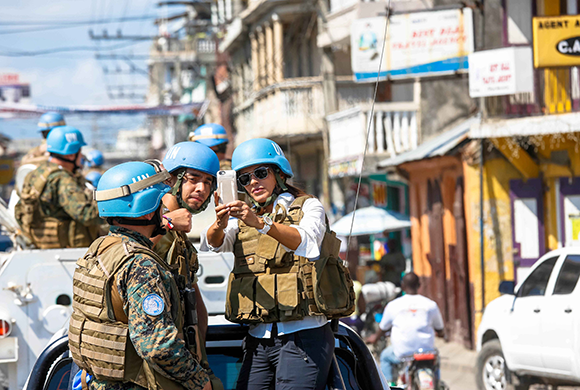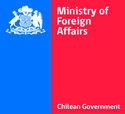
During the second week of May, the senate approved Chile's peacemaking troops to remain in Haiti for another eleven months. Chile's peacekeepers take part in the United Nations Stabilization Mission in Haiti (MINUSTAH). It is Chile's most significant commitment in terms of deploying peacemaking troops around the world: Since 2004, Chile has regularly fielded around 500 uniformed peacemakers including 8,000 military, police and civilian personnel in total.
Moreover, Chile´s decision to deploy military peacekeepers has significantly increased since 1990 with remarkable consistency. It is worth noting that Chile's Armed Forces currently participate in the Multidimensional Integrated Stabilization Mission in the Central African Republic (MINUSCA).
Before the return to democracy, Chile had participated modestly in international peacekeeping missions such as the Neutral Commission of the Chaco Boreal between 1935 and 1939, the Military Observer Mission to El Salvador and Honduras in 1975 and the Demining Assistance Program in Nicaragua in 1993. However, in the beginning of the 1990s, Chile contributed to several UN missions in countries like Cambodia, Nicaragua, Guatemala, Ecuador-Peru and Iraq. Chile's determined diplomatic effort to implement a national peacemaking policy is also exemplified by our contribution to the European Union's Operation ALTHEA in Bosnia & Herzegovina.
Chile´s Armed Forces contribution to the UN Multidimensional Integrated Mission in the Central African Republic (MINUSCA) includes three officers: Army Major Fernando Mella Spuler, Navy Lieutenant Colonel Commander César Gajardo Blu, and Air Force Lieutenant Colonel Jorge Bustos Oakley. These three officers began supporting the effort on February 26th.
However, Chile's most important mission to date is in Haiti (MINUSTAH). In this regard, it is worth recalling that the Chilean national police, Carabineros, implemented the Program Training Foreign Police. As a result, Carabineros have trained over 200 new Haitian police cadets at the National Police Academy in Chile.
It is worth mentioning that in 2008, the legislation allowed civilian control of the armed forces regarding the use of military and police forces internationally. At the same time, numerous officials have been appointed to high-level international diplomatic positions, including current President Bachelet who was appointed the first executive director of the United Nations Entity for Gender Equality and the Empowerment of Women. In this contect, Chile's current Minister of Foreign Affairs Heraldo Muñoz was the first Latin American president of the UN's Peacebuiding Commission. Chile has twice fielded MINUSTAH's Special Representative and Head of Mission with renowned diplomats like Juan Gabriel Valdes (2004-2006) and Mario Fernandez Amunátegui (2011-2013).
